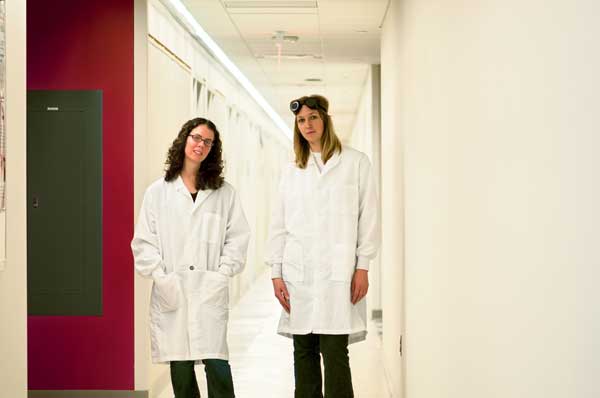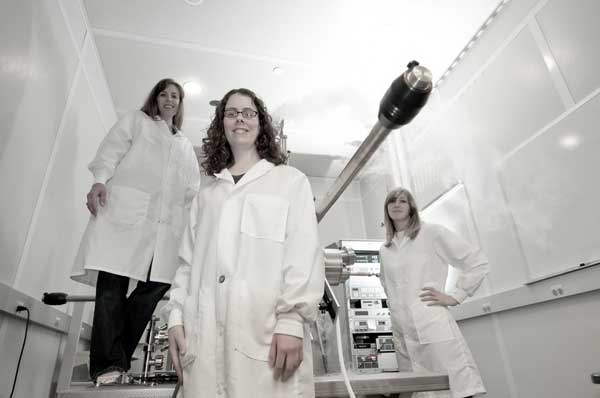
New research from Penn State’s School of Business suggests that further gender integration in the science and engineering fields could lead to further productivity and innovation. Credit: J. Paxon Reyes on Flickr (Creative Commons License)
“We can do it.”
Those four little words atop the iconic World War II-era Rosie the Riveter poster were a rallying cry for an entire generation of women.
And though there’s no question that the current generation of women have the ability to get it done, new research from Penn State’s School of Business suggests that when it comes to the workplace, the expertise of women working in the science and engineering fields is often underutilized.
In her paper “By Whom and When is Women’s Expertise Recognized? The Interactive Effects of Gender and Education in Science and Engineering Teams,” PSU associate professor Aparna Joshi found that such underutilization often led to less-than-optimal productivity and innovation.
“The rationale for fostering greater gender equity and integration goes beyond ensuring equal employment opportunity for men and women to accelerating scientific productivity and innovation within teams,” Joshi writes in her paper, forthcoming in Administrative Science Quarterly. “In order to fully utilize diverse expertise and maximize productivity and innovation in teams, it is vital to enhance gender diversity within teams and across the disciplines in which these teams are embedded.”
Though statistics from the National Science Foundation show that women in science and engineering (S&E) occupations or those with S&E degrees have doubled over the last two decades, they “remain underrepresented in the S&E workforce, although to a lesser degree than in the past.” They also haven’t broken through the glass ceiling when it comes to corporate roles, faculty positions, and salaries.
Why? Joshi’s collected data shows there is a “disconnect” in team members’ (both male and female) ability to perceive expertise. It further shows that the expertise of women was perceived—again, both by male and female team members—as less, regardless of the degrees earned.
According to her research, men who “identified more with their own gender” valued the expertise of highly educated women less than that of their male team members—and those with less education more than their higher-degree-holding counterparts. The expertise of highly educated women was utilized more in teams consisting of more women, it found.
With International Women’s Day (Mar. 8) being celebrated across the globe tomorrow, and in honor of the contributions of females in science and engineering, check out the profiles of these 43 visionary Women in STEM.
Feature Image Credit: J. Paxon Reyes on Flickr (Creative Commons License)

